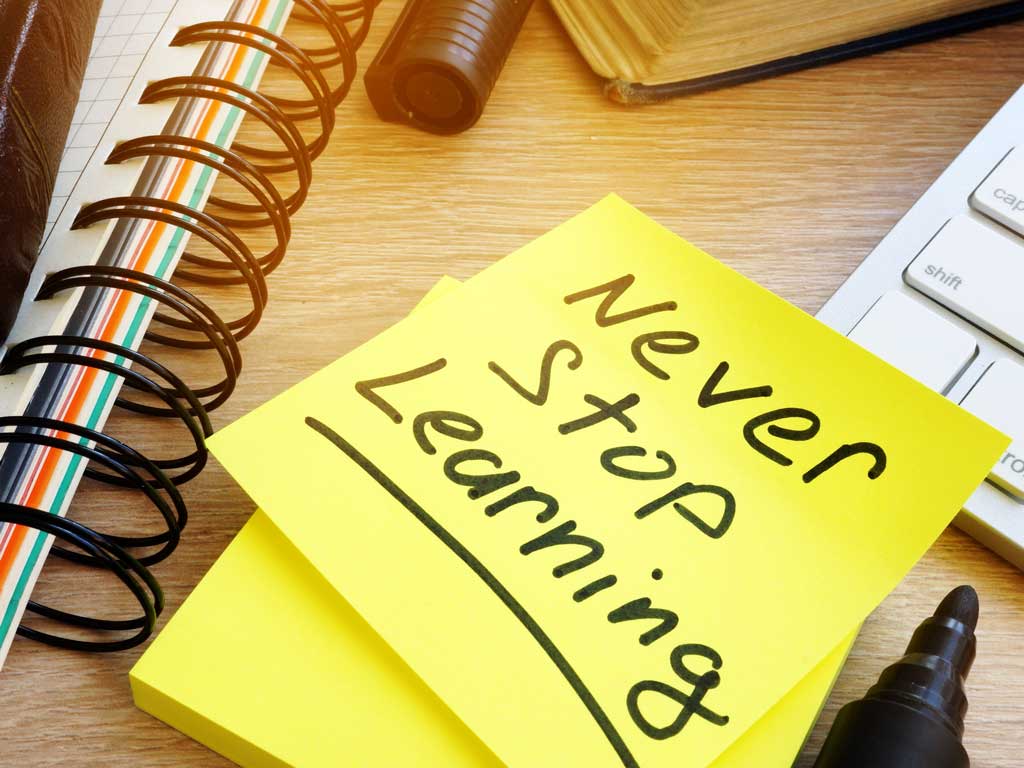by Karen Gibson
“Self-education is, I firmly believe, the only kind of education there is.” — Isaac Asimov
Learning doesn’t end after we receive our diplomas. Lifelong learning can improve our understanding of the world as well as provide us with opportunities to increase our quality of life. Many parents emphasize the importance of earning high grades, striving for scholarships, and pursuing a college education. The true gift parents can give their children is to teach them the benefits of developing a love for lifelong learning.
Embracing the challenge and curiosity of continued education takes place beyond the classroom. Learning about how to pursue career success, starting new hobbies, keeping your brain cells working at optimum levels as well as increasing our knowledge of emotional and mental balance affects our overall quality of life. Many children associate learning with dreaded homework assignments, the stress of exams, and the judgment of grades defining their worth.
If parents taught their children to love the learning process, it would make a life-changing impact on how education is perceived. They will thrive while seeking opportunities to enhance their potential for learning. The need for validation, praise, and success adds unnecessary stress. Children who are encouraged to pursue their interests will view learning as an opportunity to engage in curiosity and flourish. Children who suffer from the fear of failure often dread attending school and see education as something that gets in the way of enjoying life. Homework steals their free time and tests cause anxiety since low grades result in negative consequences.
Children develop a naturally inquisitive nature when they develop specific interests or witness the world from their perception. They start asking “why” questions at an early age. Then, when they enter a classroom, some children lose their love for learning as many academic tasks involve writing, computation, and assessments. Children thrive on praise and encouragement. Acknowledge their strengths and let them know that it’s perfectly fine to make mistakes. It just shows they are human and the need to achieve high scores should not be the ultimate goal.
Be aware and present by asking open-ended questions to inspire your child’s thinking process. Asking questions such as, “How many ways can you…?”, “What will happen if…?” or “What interesting…do you see…?”, encourages children to be creative and more involved in the learning process rather than trying to get the correct answer.
The simplest events and smallest mistakes have a big impact on learners. Turn mistakes into powerful learning lessons. Many kids dread the disappointment when they make mistakes because of the judgment that often includes a negative consequence. Children who learn at a young age that mistakes just mean they are human and a natural part of life turn into adults who do not fear failure. They often are willing to get out of their comfort zone and take risks when pursuing their goals.
Building confidence, critical thinking, social skills, and lifelong interests involve developing a love for learning in and outside of the classroom. When it comes to listening, watching, encouraging, inspiring, and demonstrating surprise as a child’s parent, children will develop emotionally and intellectually as they open their minds and hearts to new experiences.
Approaching any situation with curiosity will help children develop a natural interest in lifelong learning. Curiosity changes their brain, which will help them imagine infinite possibilities. Believing in possibilities gives them the motivation to get out of their comfort zone and pursue their dreams. Children who are hopeful have an easier time facing challenges. Lifelong learning offers children a toolbox filled with skills and strategies to cope with the rollercoaster ride of life.
As adults, when we continue to pursue opportunities to engage in continuing education, we create a window of hope as we work on personal development. Whether we are facing health issues, relationship struggles, or career challenges, we must actively choose to gain knowledge throughout our life. Lifelong learning increases our chances to overcome life’s battles. Working on our personal development skills alone will help us become better communicators and problem solvers, as well as possess a healthier mindset to live a fulfilling life.
The goal of parenting is more than instilling obedience and guiding them for academic/career success. Parenting also involves teaching, socializing, offering guidance, and emotional support. It’s preparing them to be self-sufficient as an adult who makes lifelong learning a top priority. Without the enjoyment and curiosity to pursue personal and professional development, life may be filled with unnecessary suffering. If every parent gave their children the gift of love for ongoing learning, their lives will be filled with new possibilities and opportunities. We would have fewer struggles, and more creative solutions.






